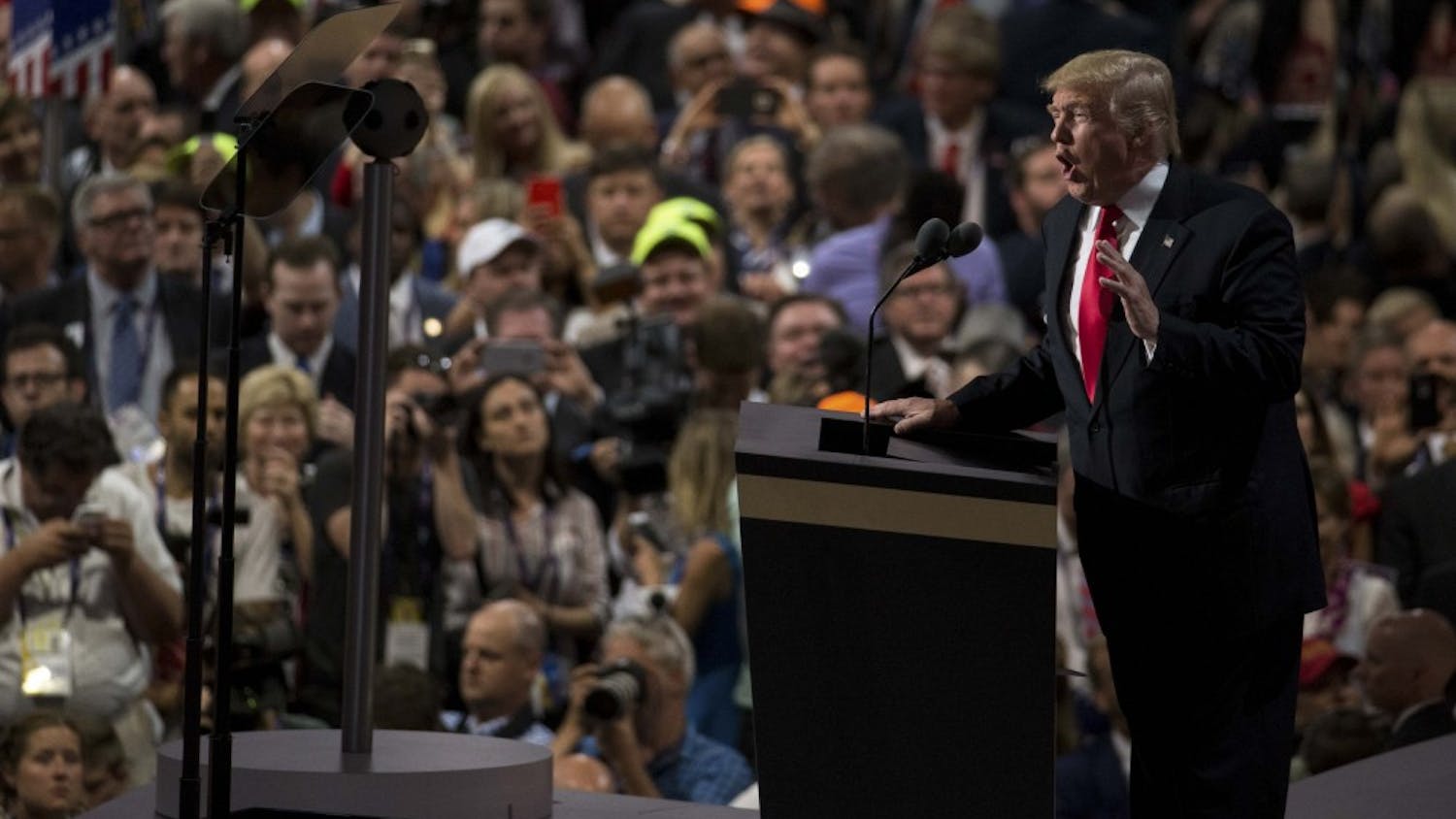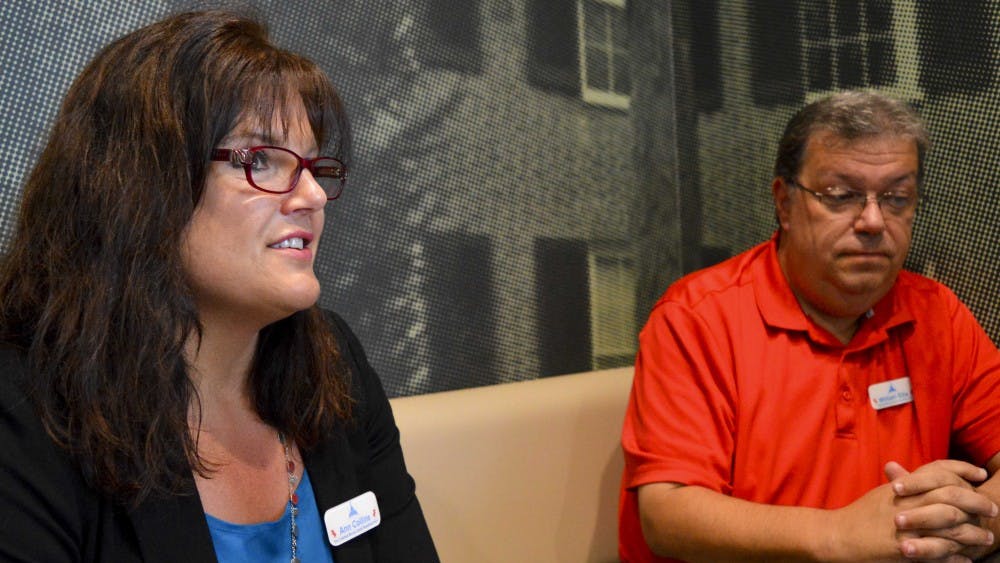Four sets of county government candidates met last night at the Monroe County Public Library for an open debate sponsored by the League of Women Voters and the Greater Bloomington Chamber of Commerce. \nAuditor\nThe auditor's debate between Republican incumbent Barbara Clark and Democratic challenger Lee Jones began with suggestions for improved technology.\nBoth candidates stressed the importance of improving public access to county records and improving the flow of information between the auditor's office and the city-county council members.\nClark cited the changes she has made as auditor during the past four years.\n"I have had other counties that have come in to see what information I give our council members," Clark said of her efforts. "Any information that I have, I make into packets and put in their boxes."\nHer opponent Lee Jones said she believes she can not only improve inter-governmental communication but also the availability of information to the general public.\n"I would make sure that (records) are posted throughout the county," Jones said. "I would also get this sort of information up on the county's Web page."\nTreasurer\nDuring the treasurer debate, Republican incumbent Pat Jeffries emphasized the modifications she has made as treasurer -- hiring more people to validate tax forms, providing two additional ways for residents to pay taxes and updating the existing tax forms -- and said she thought there was no reason for voters to change horses in midstream.\nHer opponent, Democrat Donna Richardson, accentuated her history and the commitment she would bring to the office.\n"I have a proven record of working with the people and for the people," said Richardson, who has been involved with county government since the late 1970s. "I bring to this a lot of county experience."\nJeffries and Richardson agree that the treasurer's office does an admirable job of handling the extra workload during peak tax times, but the two differed on putting tax information on the Web.\n"I've heard comments from people that they still think that's a little private," Richardson said.\nJeffries, despite her personal reservations about the issue, disagreed.\n"This is all public information; it might as well be accessed in the most modern way possible," she said. "People are wanting more and more technology in our county offices."\nCoroner\nIt's a tough job, but somebody's got to do it.\nThe three candidates for coroner agreed that the office is far from the most glamorous political position, but each has his or her personal reasons for wanting to fill it.\nRepublican Gary Darland, a former Indianapolis police officer, said his desire to become coroner comes from a deep commitment to compassion.\n"I've seen a lot of death. I've seen a lot of misery," Darland said. "A coroner and a deputy coroner should maintain the dignity of a person who has passed away."\nTamara Harty, the independent candidate, agreed in part with Darland. But Harty, a certified crime technician for the Bloomington Police Department, has a greater goal in mind.\n"My vision for the coroner's office is both compassionate and proactive," Harty said. "I see the coroner's office as more than just helping with grief and loss; it can be an advocate for the living."\nThe third candidate, Democrat David Toumey, said he wants the job because of his strong belief in public service. Toumey, who has served as deputy coroner for the last 10 years, recounted several facets of vision for the future, including the development of a joint death investigation team, the training of public safety responders to work with the coroner's office and the installation of a child fatality review team.\nWhile Harty and Toumey agreed the coroner could use his or her position to help educate the community about the risks of abuse, Darland vehemently disagreed.\n"This is a busy job, and to do it right, you have to have an awful lot of things in place," Darland said. "This (advocacy) is wonderful and flowery, and it's nice politics, but this is a part-time job."\nCircuit Judge\nThe final discussion of the evening sparked a friendly feud concerning the state of the county's judicial system. \nThe candidates fielded questions about increased mediation programs, revamping the jury selection process and the effectiveness of the court's rotation system.\nThe candidates agreed that more time should be devoted to improving the jury selection process.\n"I'd like to expand the way we get jurors from the current method to property lists, phone books, etc., so we can more people here," Dillon said. "A lot of people aren't registered to vote, so a lot of people are being excluded from the system."\nBut the candidates differed in opinion over the current court system that allows circuit judges to rotate their cases. Under this system, judges handle only one type of case each week, making it impossible for offenders to seek out sympathetic judges.\n"As a personal preference, I like the idea that I have a generalist approach to the justice system in the sense that I do all kinds of cases," said Bridges, who was instrumental in developing the system.\nDillon said he believes this kind of system adds more bureaucracy and confusion to the judicial process.\n"At this point, if you're doing one week in small claims cases, you're following a different set of laws and procedures," Dillon argued. "I think it makes sense to divide up responsibilities"
Local politicians square off in forum
Get stories like this in your inbox
Subscribe





